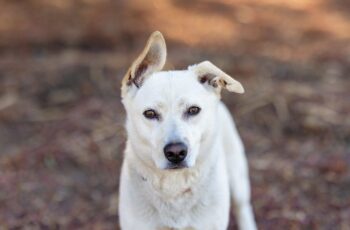-
Home
-
Small Dog Health
-
Puppy Constipation
›
›
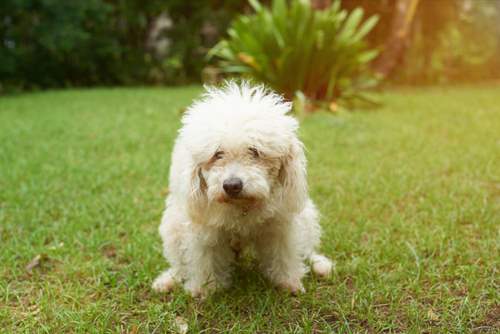 Your Puppy Constipation Questions and Answers
Your Puppy Constipation Questions and Answersby Janice Jones |Last Updated 11-22-2021
Worried your puppy might be constipated?
There is a good chance he is if he hasn’t had a bowel movement for more than 24 hours.
Your puppy’s constipation problem could be as simple as a dietary indiscretion or a serious blockage or tumor. But, the good news is that the problem is not serious and you can feel good that you were able to help your pup feel well again.
Knowing what you can do at home and when you need to call the vet is a decision that many puppy owners must make. In this guide, I will provide you with some common-sense advice to help you deal with constipation and prevent it from happening again. But first, let’s define exactly what it is.
What is Puppy Constipation?
A constipated puppy has accumulated solid waste in his colon for too long causing it to lose most of the moisture. Hard dry feces are difficult to pass. Your puppy strains, whimpers, and spends too much time crouching with the hope of moving the troublesome fecal matter.
If this goes on for 24 hours or more, your puppy is constipated and may need some help.
Most Common Causes of Puppy Constipation
There are many reasons why a puppy might become constipated. Look for the most obvious ones first.
Diet, a Common Cause of Puppy Constipation
There has been much discussion in recent years about grains in the canine diet. While many people feel that a grain free, low carbohydrate diet is ideal, the truth remains that dogs need some fiber in their diet to help digestion. Fiber, even though it doesn’t have much nutritional value, is vital to assuring food passes through the intestines into the colon and removed.
The exciting thing about fiber is that it can either speed up or slow down the time food moves through the system. That is why fiber works to treat both diarrhea and constipation.
According to Dr. Becker,
“Fiber can be soluble, insoluble, fermentable, non-fermentable, or a combination. The fiber found in most commercial pet food includes beet pulp, grain hulls, guar gum, oat and other bran, peanut shells, fruit pectin, psyllium, tomato pomace, and powdered cellulose (which is a fancy word for wood pulp).”
In some raw diets, there is not enough fiber and can lead to constipation in puppies consuming such a protein-rich food.
Normal puppy poop should be solid and bulky but not hard. Any food that results in abnormal poop can be the cause of puppy constipation.
An abrupt change in dog food can also cause constipation (or diarrhea). If you must change from one food to another, make the switch over a week or more. Even food from the same manufacturer may cause problems. A change from canned to dry and vice versa may stress the system leading to constipation or diarrhea.
Dietary Indiscretion
 This Tibetian Terrier found a yummy stick to chew and likely swallow bits of wood.
This Tibetian Terrier found a yummy stick to chew and likely swallow bits of wood.Puppies are notorious for eating everything in their environment. Small toys, sticks, coins, bottle tops, even kitty litter are fair game. Assume that if an object is in direct reach of your puppy, he might find it tasty. Objects depending on the size can cause a blockage.
Partial or complete obstruction of the intestines can prevent movement, making normal defecation impossible. If you suspect your puppy ate something to call your vet immediately.
Matted Hair
If your puppy is a member of a long-haired breed, the hair around the anus can grow, get tangled in feces and cause a strong barrier. This prevents the dog from passing a normal bowel movement.
If this goes on for more than 24 hours, the puppy strains harder causing redness, irritation and pain. Even after removing the caked-on feces, the puppy is still in pain and may continue to have constipation. After removing the hair using a blunt tipped scissor or hair clipper, either clean the area or give the puppy a warm bath. Dab on an antibiotic ointment such as Neosporin to the affected area until healed.
This condition is also called psuedoconstipation or mechanical constipation.
Dehydration and Electrolyte Imbalances
 Panting signifies overexertion, overheating over-stressed among other things. Fluids are lost when dogs pant and need to be replaced.
Panting signifies overexertion, overheating over-stressed among other things. Fluids are lost when dogs pant and need to be replaced.If the puppy eats a diet of kibble and does not drink enough water, the body may become dehydrated causing the stool to be dry and hard. Dry, hard stools, a mentioned above are very hard to pass.
Some Medications Cause Puppy Constipation
Drugs can also be the cause of constipation and may include opiates, diuretics, antihistamines, some antacids, and certain cancer drugs. This usually is not a problem in puppies, but should the puppy get into and ingest any human medicating, call your vet immediately.
If your puppy is on antihistamines, watch his bowel movements. Human medicines such as Pepto Bismol used to treat diarrhea can also cause constipation so it is not recommended that you give this type of over the counter medication without consulting your vet.
Stress
Stress and psychological problems is a standard issue in young puppies especially during the transition period from leaving the breeders home and moving into his forever home. Even good stress can have an effect on digestion.
Poorly digested food can lead to a buildup in the colon causing feces to dry out and harden. Another way that stress can result in constipation is through increased muscle tension. We have experience that if we’ve ever had a tension headache. Muscle tension can interfere with the normal movement of food and nutrition through the GI tract.
Harsh potty-training tactics can also cause a sensitive puppy to hold it, resulting in constipation.
Hairballs
Hair Balls? We usually think of hairballs as occurring in cats, but some dogs, particularly long-haired puppies may lick themselves and in so doing ingest hair. The hair accumulates as in the cat and can lead to an obstruction.
Disease
Some disease can result in constipation such as bacterial infections, kidney disease and tumors. If your vet suspects an underlying cause, she will likely treat that before dealing with constipation.
Lack of Exercise Can Lead to Puppy Constipation
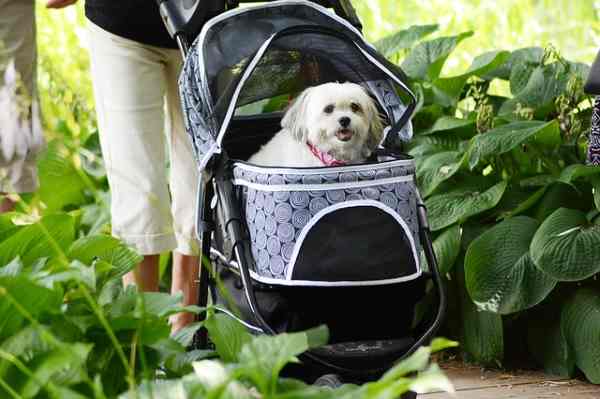 This kind of exercise is good for you but bad for your dog.
This kind of exercise is good for you but bad for your dog.Lack of adequate exercise can lead to poor digestion and constipation. For those with very active and energetic breeds, this seems almost impossible to imagine. Some breeds are more laid back and need reminders to exercise.
Surgery
Surgery can cause temporary constipation in puppies due to the combined effects of anesthesia and the lack of activity after the surgery. For this reason, you need to to keep a close watch on your puppy especially after spay or neuter operations to assure that his/her gastrointestinal tract is working properly.
Treating Puppy Constipation
As I mentioned above, some causes of constipation are easier to manage than others. If you suspect something simple such as your puppy not drinking enough water, you can try some of the home remedies first. If constipation goes on for more than 24 hours, or even sooner if your pup is straining, lethargic, or crying call your vet for instructions.
Pumpkin
 Canned or fresh pumpkin can take care of diarrhea and puppy constipation.
Canned or fresh pumpkin can take care of diarrhea and puppy constipation.Pumpkin is often the go-to cure for treating not only puppy constipation but diarrhea as well. Fresh pureed or plain canned pumpkin can be added to your puppy food and mixed well. Most puppies (and adult dogs, for that matter) love the taste of pumpkin so forcing them to eat it won’t be an issue.
Use about a teaspoon per meal.
Pumpkin is a source of fiber with a high-water content so it does both bulks up the stool or loosens the stool. Many owners will keep pumpkin on hand at all times, give a spoonful now and again as a treat.
Pumpkin contains high fiber and water content, which can help bulk up and loosen the stool. Continue this treatment until constipation passes. You may also choose to make pumpkin a regular part of its diet.
Another (and easier way in my opinion) is to purchase a pumpkin product that comes in a tablet or powder form. These products last a long time and won’t go bad like pumpkin in the can.
Cow’s Milk
 Milk is normally not recommended for dogs because they can’t digest lactose. A bit of milk, however, acts as a laxative.
Milk is normally not recommended for dogs because they can’t digest lactose. A bit of milk, however, acts as a laxative.Commonly not recommended for dogs, cow’s milk can make an excellent laxative for dogs who are constipated. Milk causes diarrhea in dogs because they cannot digest lactose.
But a little bit of diarrhea is a small price to pay for getting the bowels moving again.
One eighth to one-quarter cup of milk mixed with the puppy’s food twice a day works well or pour a little in a bowl to serve. A larger breed puppy may need up to ½ cup of milk to achieve the effect. This method can take up to two days to work but as soon as you see results, stop as the milk will likely cause diarrhea.
Exercise and Hydration
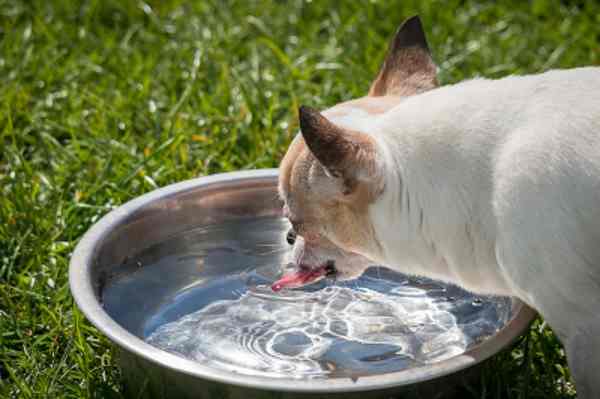 Some puppy constipation is caused by dehydration. Be sure your dog has water available at all times.
Some puppy constipation is caused by dehydration. Be sure your dog has water available at all times.If you suspect your puppy may be spending too much time on the couch, arrange for a neighborhood walk for you AND him. Play a game of fetch or take him to a park. If lack of water consumption could be the problem, provide plenty of cold, fresh water.
Change out the water and wash the bowl to encourage him to drink more. Some small dog breeds do better drinking from a water bottle. See if that method would work well for your dog. Other ways to hydrate include making a very dilute tea or diluting chicken broth and serving it warm.
Another way to assure adequate hydration is to serve canned food. Typically, dry kibble only contains 10% moisture whereas canned food consists of up to 75% water. A change in dog food often results in diarrhea which is what you want to some extent. Be forewarned and stop the canned food as soon as your pup’s stools return to normal.
If you don’t want to switch food, add hot water to the dry kibble and allow to soak until the kibble is very soft. The added water has the added bonus of bringing out the favor which might make a constipated puppy‘s appetite return to normal.
Remedies that Bulk up the System: Bran
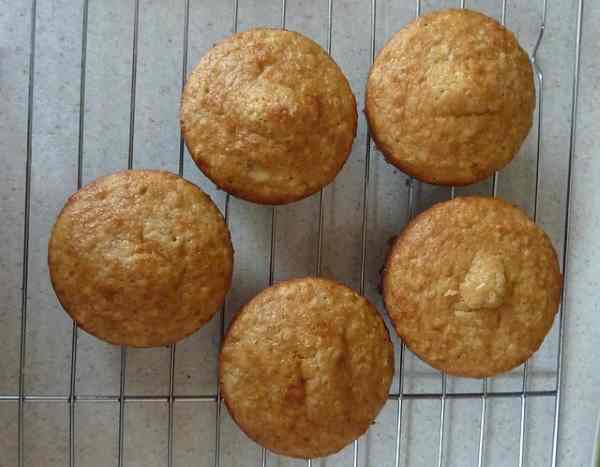 Bran is another excellent source of fiber that works well for puppy constipation
Bran is another excellent source of fiber that works well for puppy constipationMetamucil-type products including Metamucil, Benefiber, or Milk of Magnesia work by absorbing water into the GI tract. Non-flavored products work best with dogs. Mix 1 to 2 teaspoons of powder into your dog’s food twice a day.
Bran (Wheat or Oat) may also be helpful. Bran is the outer shell of the grain with the most amount of fiber. Usually dog food contains enough bran, but if a puppy is suffering from constipation, a little more bran may be helpful.
You can sprinkle a little oat bran, wheat bran, or rice bran on top of the food. Powdered psyllium seed pull water into the stool and help move it along so that is another product you could try.
Vet Approved Laxatives
If your puppy is clearly miserable, a laxative is a quick cure but you should check with your vet before using any type of laxative, primarily if they were meant for humans. A pet safe laxative such as lactulose is much more reliable.
Laxatone has been around for a long time and is usually used to treat hairballs in cats. It is a mild laxative and is designed to combat swallowed hairballs that obstruct bowel movement. It is also a mild laxative and works by activating contractions in the intestines that help move stuff along (such as hairballs). Before using any over the counter laxative or stool softener, check with your vet.
Here are a few I found that are highly rated.
Vet-administered Enema
Enemas have a way of cleaning out the colon and providing immediate relief to pets who have feces severely impacted in the colon. It is a smelly, messy job and one which is best left for the vet. Enemas if not performed correctly can cause injury and toxicity, so this procedure should not be done without the advice of your vet.
Puppy Constipation Prevention Tips
In most cases puppy constipation is a one-time event where the pup recovers and returns to his healthy happy self.
In some puppies, though, constipation can become part of his life. For others, if the causes of constipation have not been discovered and resolved, it can return. For this reason, it is vital to understand the logic behind your puppy’s constipation.
Your puppy may have gotten over the difficult period and is now back to his playful normal, but if you are not careful it could happen again. This is especially true if you did not understand the cause of the problem in the first place. Here are some things you can do to ensure that your pet is not constipated again.
- Determine the reason behind the bout of constipation. Make changes accordingly.
- Review the diet. Change to a high-quality diet that contains adequate fiber.
- Review your puppy’s treats and switch from low quality, junky treats to those on par with your dog food. To commercially available treats, add some foods such as raw carrots or celery that add dietary fiber to your dog’s daily food intake.
- Determine a regular exercise schedule that will work for both you and your puppy. A long evening walk or a couple quick jaunts around the block will go a long way to improving the health of both of you.
- Long Haired Puppy Breeds: Plan to buy a small round tipped scissor or hair clipper and keep the area around the anus free from hair, even between professional grooming sessions. In young puppies, the hair increases, so check this area at least several times a week.
- Consider a grain free dog food or low grain food for your puppy. Assure the food continues to have at least one if not more sources of fiber for good gut health.
- Monitor your puppy’s water intake. Dogs drink more water if their bowl is super clean and contains cold fresh water than if the container is not washed out daily. Bottled water may be better if the tap water leaves much to be desired.
Chronically Constipated Puppy
If you have a puppy that seems to get constipated all of the time, here are a few additional suggestions for you to consider
- Canned dog food
- Digestion Supplements
- Superfood Supplements
- Hydration
- Exercise
- Regular Grooming
Learn more about Superfood Supplements
Conclusion & Puppy Constipation Takeaway Points
We are
actually lucky nowadays because we have so many options to treat puppy
constipation. Maybe you remember the
days when mineral oil shoved down ours and our dog’s throats were the only
option.
We now have cures that are not
only pain free-but actually pleasant, even delicious. Who can resist the idea of chowing down on a
pumpkin bran muffin or enjoying a cold glass of fresh milk?
What pup would give up the chance to take a
long walk with his favorite human or munch on some fresh tasty greens. Constipation is no fun, no matter how you
look at it, but there are so many cures that puppies need not be uncomfortable
for long.
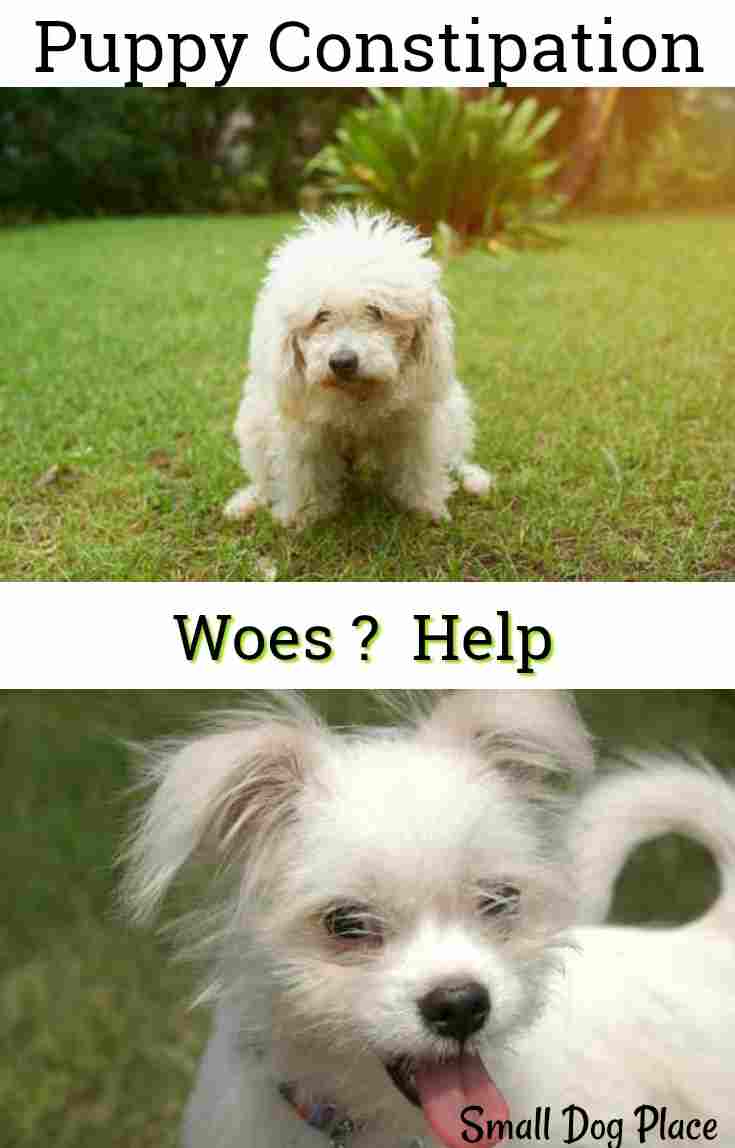
Does This Article Deserve Your Thumbs Up?
We always appreciate your support and encouragement. Your thumbs up means so much to us. Please like this article.
If you find this page or any page on Small Dog Place Helpful, or Useful in anyway, I’d love it if you would click the small heart found on the bottom right of each page.
You can also share or bookmark this page — just click on the:

Free Monthly Newsletter
Sign Up for Our Free Newsletter and get our Free Gift to You.
my E-book, The Top 10 Mistakes People Make When Choosing a Dog (and how to avoid them)

